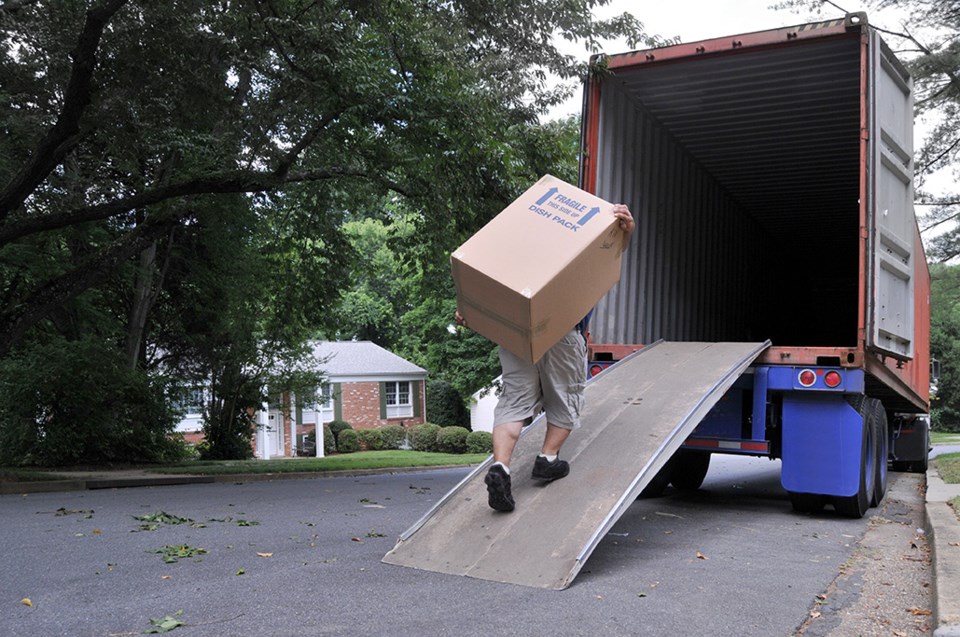Squamish single mother Katie Smith is packing up her young family and moving to Kamloops. Like many lower income folks in town, she can’t afford to stay here, she says.
Smith has lived in almost every type of housing Squamish offers, including a shelter, and currently subsidized housing.
“It is way too expensive,” she said of why she is leaving town. “I am always worried about money, and I am always lacking money. If I didn’t have my friends and my mom to help me with groceries sometimes, I probably wouldn’t make it.”
Though she is in subsidized housing, she still can’t afford to live in the district.
Her recent hydro bill was the last straw.
She was on an equal payment plan of $59 a month, but with a newborn baby and a young son, she used more electricity than she had paid for with the installments and thus currently faces a BC Hydro bill of $500.
“I unplug everything, I barely use any lights, I use cold water,” she added.
In Kamloops, she can get a home for lower rent with heat included, she said. Transportation will be more affordable in Kamloops too, Smith said, and childcare is less expensive and more readily available.
Though she has to move, Smith says she has had it good in Squamish compared with others she knows.
“I could complain, but honestly compared to other people down here, it is less stressful,” she said.
“Squamish has original residents that can’t move because they can’t afford it and they can’t live here because they can’t afford it, so they end up on the street. These are people with families who have kids to feed and unfortunately some of us have single-parent households and it becomes… impossible.”
Squamish needs more units that are truly affordable, Smith said.
“Based on 30 per cent of your income, for low income families.”
What Squamish currently has available can’t meet the ever-increasing need, she said.
In Squamish, Sea to Sky Community Services operates Riverstones and Centrepoint housing developments, which have units with rent geared to income. Castle Rock is the only complex with rents geared to incomes that also offers units with subsidies attached.
Sea to Sky Community Services does not operate a waiting list for its housing, according to its website. Potential renters apply and then wait until someone moves out of the appropriate unit.
The District of Squamish, in partnership with BC Housing, is considering one downtown site for 80 units of rental housing on Buckley Avenue that will cater to a maximum gross household income still to be determined. That development is early in the government approval process so units won’t be available for some time.

Marc Lee, a senior economist with the Canadian Centre for Policy Alternatives, said there is only so much local governments can do to help combat a housing crisis. Recently, the provincial government introduced legislation that would allow municipalities to insist existing rental properties are not redeveloped for another use. Councils could designate a new building for rental only, or it could designate a portion of a new development to be rental.
“That... can potentially take the air out of the speculative pressures that are looking at it more from the investment perspective,” he said, adding, “How do we stop thinking of housing primarily as an investment and thinking of it more as how do we do it in our own community.”
Lee acknowledges that for private developers, the issue with building rental properties is the upfront capital required. But, he says, once a building is in place, there is the steady stream of rental income for years.
“So even if it is subsidized rents — it depends on the size of it — but if you have 20 rental properties, you have 20 times the rent coming in every month, so if you look at it over 20 or 30 years, potentially that housing is going to last 50 to 100 years and so you can pay that off with the rental income. The challenge is getting that upfront capital to build the thing in the first place.”
More below-market rental housing is needed in many places in B.C., including Vancouver and Squamish — as is being proposed here for Buckley Avenue.
“Rather than just having it just being in the private market,” Lee said.
As Smith’s story suggests, the issue of low-income people being forced out of their communities is complex and has a ripple effect on the local economy.
“Local businesses will be struggling to find labour, and they will need to raise their wage rates to make it possible to fill those positions. And the flip side of that for people who accept [the jobs] will actually be able to afford to live in the community,” said Lee. “That is maybe a tougher sell if you are thinking of small businesses in town and what they are doing and the juggling act they have… Fundamentally, someone working full time, a full year in a community ought to be able to minimally rent a decent accommodation and over the longer term, once they have a down payment be able to buy a place and live there.”
But for people like Smith, there is no silver bullet that can solve the problem quickly, Lee acknowledged.
“It is a long game and we kind of neglected it for a couple of decades and now we are in a difficult situation,” Lee said. “I wish there was a cleaner answer for you.”
DEFINITIONS
Affordable housing: Housing is considered affordable when 30 per cent or less of your household’s gross income goes towards paying for your housing costs.
Below-market rental housing: Below-market rental housing is housing with rents equal to, or lower than, average rates in private-market rental housing.
Market rent: A rent amount that is generally similar to the rent of other units in the private (non-subsidized) housing market.
Rent geared to income: A type of subsidized housing where the housing provider matches your rent to how much income you earn.
Subsidized housing: A type of housing for which the provincial government provides financial support or rent assistance.
~BC Housing




